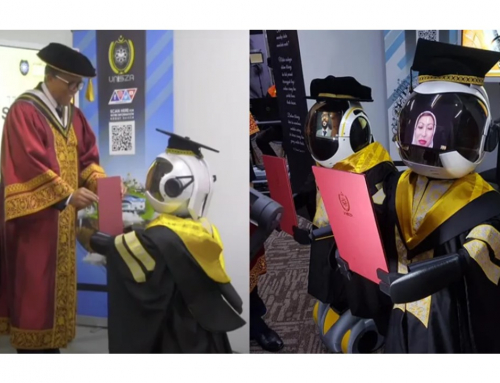
Many checks involved: Fadzil Ahmad elaborating on the company’s role during an exclusive interview.
The move to set up the e-processing system came about after a pioneer team member went to China and heard loud complaints about the manual processing of visas being a hassle for foreigners. Ultra Kirana Sdn Bhd director Datuk Fadzil Ahmad shares what the company is all about.
How did you come up with the system?
Much has been said about one company monopolising such services. Your comments?
From 2009 until now, the government has not been charged for our services as we are responsible for the development of the software, research and development, cost for the servers and other logistical matters. Even after all the proofs of concept, we handed over our equipment and infrastructure to the government for free. We only charged the consumers/visa applicants from May 2012 until now.
What are the benefits of using such a system?
Prior to 2012, Immigration attachés overseas were responsible for handling administrative matters and their core business, including visa applications as well as passport-related issues. They had to deal with high volumes of applications to the extent that the officers had to work until the wee hours daily to meet the three-day processing, according to the Immigration Charter. Such bottlenecks made it difficult for tourists to visit Malaysia. However, with the OSC and the VLN, our staff will do all the data entry, extraction, verification and data accuracy prior to online submission to the attachés for their approval. That made visa processing more efficient, systematic and secure. As such, during peak seasons, more than 15,000 applications were processed daily. It has helped boost the number of tourists from China by 40%.
Is your company responsible for approving or rejecting applications?
Our client charter to the government is to complete data entry and verification within 24 hours after applications are received. This gives the attachés breathing time to conduct the approvals or rejections. I say again, our company has no authority to approve applications. We simply facilitate a speedier processing of applications.
Can you give an example of your “non-judgmental” capacity in the application process?
For example, each application that comes in, we can only cross-check with the Immigration’s Suspects’ List but we do not have access to the database such as who is on it or what crimes they have committed. The database is high security information so it is under the purview of the Immigration. If our cross-checking produces a hit (after nine times of clicking), then we will forward the application to the Immigration, noting that the applicant is on Suspects’ List. Subsequently, it is up to the Immigration to reject or approve the application.
What is the difference between eVISA and eNTRI?
eVISA is the electronic visa application whereas eNTRI is a system of registry for Malaysia’s visa waiver programme for Chinese and Indian visitors. For eVISA, the applicant is charged US$25 (RM104) and the rejection of application occurs online, whereby the applicant will know they have been rejected even before making the trip. For eNTRI, priced at US$20 (RM83), the user can submit their details but rejection of the visitor occurs at the border or entry checkpoints by the Immigration Department as eNTRI serves as a form of registry for Chinese and Indian visitors. eNTRI allows a Chinese or Indian visitor to stay in Malaysia for 15 days. However, if they prefer to stay longer, they have the option of applying for an eVISA that enables them to stay in Malaysia for 30 days.
There is an allegation that the e-processing handled by UKSB is lax on security, resulting in the possibility of unsavoury foreigners entering the country for the wrong reasons. Can you comment on that?
There was a case of six suspicious women from China and we raised the matter with the Immigration Department. However, they turned out to be just tourists and we were criticised for our suspicions. In truth, we cannot judge whether the visitors are unsavoury or otherwise. We cannot tell with what intentions the foreigners come in, and unless their names appear in the Suspects’ List, the system won’t be triggered. However, the Immigration Department has its own checking system, such as a traveller’s frequency of entry.






